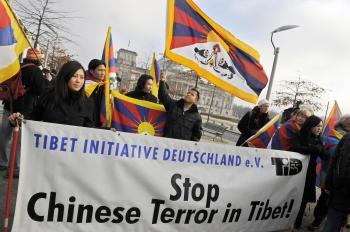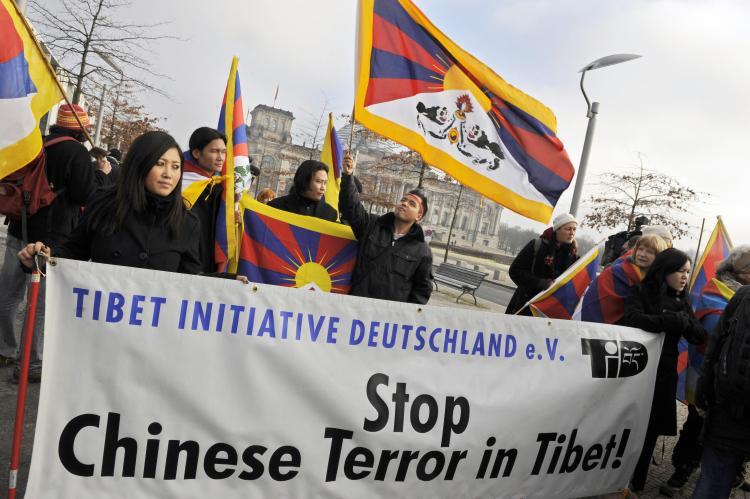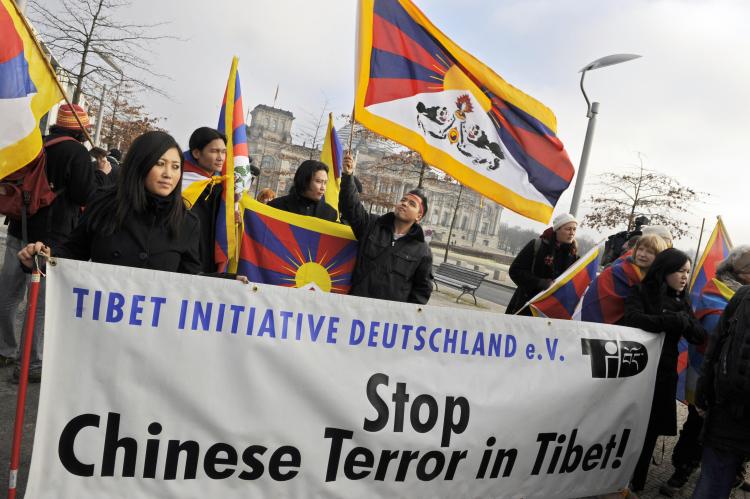China’s communist regime has declared a new annual holiday in Tibet, called “Serfs Emancipation Day,” to celebrate the so-called liberation of the Tibetan people when Chinese forces entered the country in 1949.
In response, a human rights group has released previously classified documents from the Canadian government detailing international opinion that Tibet was a sovereign state at the time and far from needing “liberation.”
The Canada Tibet Committee (CTC) is calling attention to 68 pages of documents prepared between 1944 and 1969 that include memorandums updating the Canadian government on Chinese military aggression in the region.
“[These documents] add to the case that China has rewritten history in regards to Tibet. I think they are quite categorical that there was no liberation going on. And you don’t see any reference to a feudal society in Tibet in the documents either,” says CTC executive director Dermod Travis.
One memorandum, a 1950 legal opinion from the Department of External Affairs, concluded that, from the point of view of international law, Tibet qualified for recognition as an independent state at the time Chinese forces invaded the country.
“It is submitted that the Chinese claim to sovereignty over Tibet is not well founded,” stated the memorandum, noting that after 1911 and possibly even before, the notion of Chinese authority in the region seemed “to have been a mere fiction.”
“In fact, it appears that during the past 40 years Tibet has controlled its own internal and external affairs. Viewing the situation thus, I am of the opinion that Tibet is, from the point of view of international law, qualified for recognition as an independent state.”
In another document, a November 1950 memorandum to Ottawa, Warwick Chipman, Canada’s High Commissioner to India, noted: “…if China owned Tibet…there would certainly be no point in sending an army to conquer it. The sending of an army is surely a confession that the matter is not domestic.”
What makes the documents even more valid, says Travis, is that Canada was an independent observer at the time with no strategic interest in the region or in Tibet’s status.
“In terms of a lot of the propaganda that we hear from the government of China these are invaluable documents, not just because of what they say, but because it was the government of Canada writing the documents. The idea of independence is very critical in this.”
A 1944 document from the Canadian Legation of Chungking, China advised Ottawa that “there is no doubt that official China is determined to ‘swallow’ Sinkiang, Tibet, Outer Mongolia, Kansu and Sikang, no matter what the people living in those regions may feel about the matter.”
The Chinese regime holds that Tibet was always part of Chinese sovereign territory and that its invasion liberated the Tibetan people from a system of feudal oppression under the Dalai Lama.
It was on March 28, 1959 that the Chinese Communist Party (CCP) announced the dissolution of the government of Tibet, hence the regime’s announcement of the new holiday to fall on March 28. It was also in March of that year that the Dalai Lama escaped, fleeing across the Himalayas on foot to India.
A ruthless crackdown by the Chinese army on an uprising in Lhasa earlier that month resulted in the deaths of tens of thousands of Tibetans.
In one incident, the Chinese army fired about 800 artillery shells into the Dalai Lama’s Summer Palace, destroying the ancient building as well as over 300 houses in the area. Thousands of civilians died and were injured in the ensuing inferno, as reported by the BBC at the time.
According to a recent Xinhua news report, a CCP official said the new holiday was aimed at “reminding all the Chinese people, including Tibetans, of the landmark democratic reform initiated 50 years ago.”
With the 50th anniversary of the 1959 pro-independence uprising approaching and because of the protests that turned into deadly riots in Lhasa last spring, unprecedented levels of security are already in place throughout Tibet.
Chinese police have also begun another “strike hard” campaign in Lhasa, says Travis.
“They’re literally going door to door doing random searches, making arrests. They’re arresting people simply because they have music on their cell phones that is banned by the government of China.”
hile religious repression under Chinese rule is widespread and Tibetans can be imprisoned if caught with a picture of the Dalai Lama, the majority remain fiercely loyal to their exiled spiritual leader.







